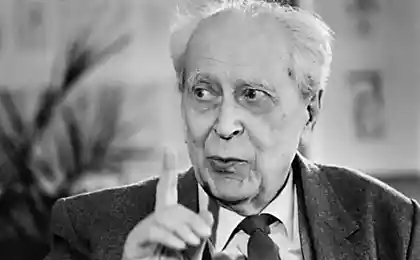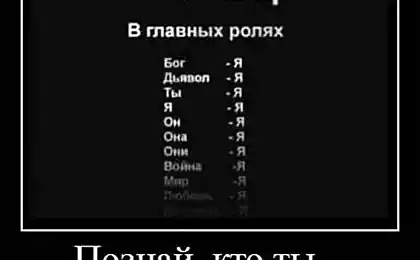344
How to Find a Man Among People: The Anatomy of True Intelligence
When culture becomes the only measure of dignity

“Intelligence is like the smell of skin. You can't wear it tonight. You can memorize quotes. Buy glasses without diopters. Learn in what glass the port wine is served. Still, no.
In an era when the image has become more important than the essence, and the status in social networks determines the social status in reality, the question of what is true intelligence becomes especially acute. We live in a world of masks where one in two etiquette experts and one in three quote classics without reading their works. But there's something you can't fake, buy or learn over the weekend. This is a quality that manifests itself not in words, but in deeds, not in knowledge, but in relation to the world.
Myths and Reality: What Is Not Intelligence
Modern society has created a cult of pseudo-intelligence. We confuse erudition with wisdom, etiquette with humanity, and education with civility. Research by social psychologists suggests that people tend to attribute intelligence to those who exhibit external markers of education.
A life story: In a prestigious restaurant in Moscow, a waiter accidentally spilled wine on an expensive costume. The reaction was instant and revealing. The “educated” client in glasses without diopters and with quotes from Dostoevsky on his lips staged a grand scandal, humiliating the young man. And sitting at the next table, an elderly man in simple clothes quietly approached, helped the waiter and said: “Sometimes, son.” The main thing is to learn a lesson.” Which of them showed true intelligence?
False markers of intelligence:
Number of books read You can read thousands of volumes and remain spiritually deaf to the pain of others.
Knowledge of etiquette The rules of conduct in society do not make a person good or just.
Education and regalia A diploma does not guarantee conscience or empathy.
Nice speech. The ability to speak can mask emptiness or anger.

The Anatomy of True Intelligence
Intelligence feels like the breath of a person next to you.
True intelligence is not a set of knowledge or skills, but a way of being in the world. It is an inner culture that manifests itself in every gesture, look, word. Psychologists identify several key components of this phenomenon that cannot be simulated.
Empathic sensitivity
An intelligent person has a developed capacity for empathy—not that ostentatious pity that is flaunted, but a deep understanding of the inner world of another. Neurobiological studies show that empathy activates the same areas of the brain as your own pain. The intelligent person literally feels the pain of others as his own.
Internal ethics
“An intelligent person is not polite because it is necessary. Because otherwise, they are uncomfortable with themselves. ?
This is the fundamental difference between true intelligence and ostentatious education. External politeness is dictated by social norms and fear of judgment. Internal ethics is born from a deep understanding of the value of each human person. An intelligent person cannot be rude, not because it is “uncivilized,” but because rudeness hurts and causing pain is contrary to his inner nature.
The wisdom of silence
American psychologist Daniel Goleman in his studies of emotional intelligence revealed a paradox: the higher the level of internal culture of a person, the less often he seeks to demonstrate his superiority. The intelligent person understands that ridiculing another person is always a sign of his own insecurity.
“He does not remain silent when ridiculed. Because he understands that laughing is always about fear. Weakness. About the pain they couldn't handle. This ability to see behind aggression pain, behind rudeness - insecurity, behind arrogance - complexes, distinguishes a truly intelligent person from simply intelligent or educated.

Practical signs of intelligence
How to recognize true intelligence in everyday life
Vulnerability test
“Intelligence is how you treat the vulnerable. Junior. Someone who can't answer. This is the most accurate marker of internal culture. See how a person behaves with those who cannot benefit him: with children, with the elderly, with those who are dependent.
Practical exercise: Pay attention to your behavior in the following situations:
• How do you talk to the seller in the store?
• How do you respond to subordinate mistakes?
• How do you deal with those who ask for help?
• What about people who don’t share your views?
Moment of truth
“It shows up when no one sees you.” True character testing does not occur in public, but in the silence of loneliness. What do you do when you think no one will know? Are you picking up garbage you didn't throw away? Can you help someone who can’t be grateful? Do you tell the truth when lying would be better?
The development of true intelligence: practical recommendations
The Path to Internal Culture
1. Practice conscious empathy
Exercise "Looking from the inside": Before you react to someone’s behavior, stop and ask yourself, “What could have led this person to do this?” Try to find three possible causes unrelated to his bad temper.
2. Development of internal dialogue
Intellectuality begins with honesty. Have an internal dialogue: “Why do I want to say this?” "How do I really feel?" "What is my true motivation?" Studies show that people with a developed ability to reflect show more compassion for others.
3. Practice of non-evaluative perception
48 Hours Technique: When you want to judge someone’s behavior, give yourself 48 hours to think. During this time, try to find at least one explanation for an action that does not make a person “bad.” It’s amazing how often our perceptions change when we give ourselves time to think.
4. Cultivating internal silence
The "Stop Before the Word" rule: Before you criticize, pause for three seconds. Ask yourself, “Will it help or hurt?” “Is it true and is it necessary now?” “Can I say this with love? ?
Intelligence in the Digital Age
Social media has created new challenges for intelligence. The temptation to “seem” became stronger than the desire to “be.” But true intelligence is also evident in the digital space: how we comment on others’ posts, how we respond to criticism, how we behave in online discussions.
“So in the next conversation you want to appear in, just be quiet.” The real thing. You don't have to prove it. ?
Digital Intelligence: New Rules
Principle of Digital Empathy: Behind each avatar is a real person with real feelings. Before you write a comment, imagine saying it to the person’s face.
“Does this add love to the world?” Every post, every comment, is an opportunity to either add a little kindness to the world or increase the amount of pain.
When intelligence becomes power
There is a myth that intelligent people are weak, that their kindness makes them vulnerable. True intelligence is a great inner strength. It gives a person resilience in the face of chaos, the ability to preserve humanity in inhuman circumstances.
History knows many examples when intelligence became a source of incredible power. Doctors who risked their lives for patients. Teachers who kept their children believing in the good in the darkest times. Ordinary people who showed by their example that humanity is indestructible.
Conclusion: returning to self
In a world where it’s so easy to get lost amid endless masks and roles, intelligence becomes the way home to yourself. It is not a goal to be achieved, but a way of life to be chosen every day, every minute. You can seem rich, successful, in love. But it is really impossible to seem intelligent. Because intelligence is not what we wear, but what we are. And that's her incredible beauty and power.
Glossary of terms
Empathy is the ability to understand and share the feelings of another person, to put yourself in his place.
Reflection is the process of understanding one’s own thoughts, feelings and actions, the ability to introspection.
Emotional intelligence is the ability to recognize, understand and manage one’s own emotions and those of others.
Internal ethics is a system of moral principles that comes from deep personal beliefs rather than external demands.
Pseudo-intelligence is an external imitation of the signs of education and culture without internal content.
Mindfulness is a state of active attention to the present moment and what is happening within oneself.
How to restore the liver: invaluable advice of Professor Neumyvakin
Nihilism of the goal: where does the road to nowhere begin?























